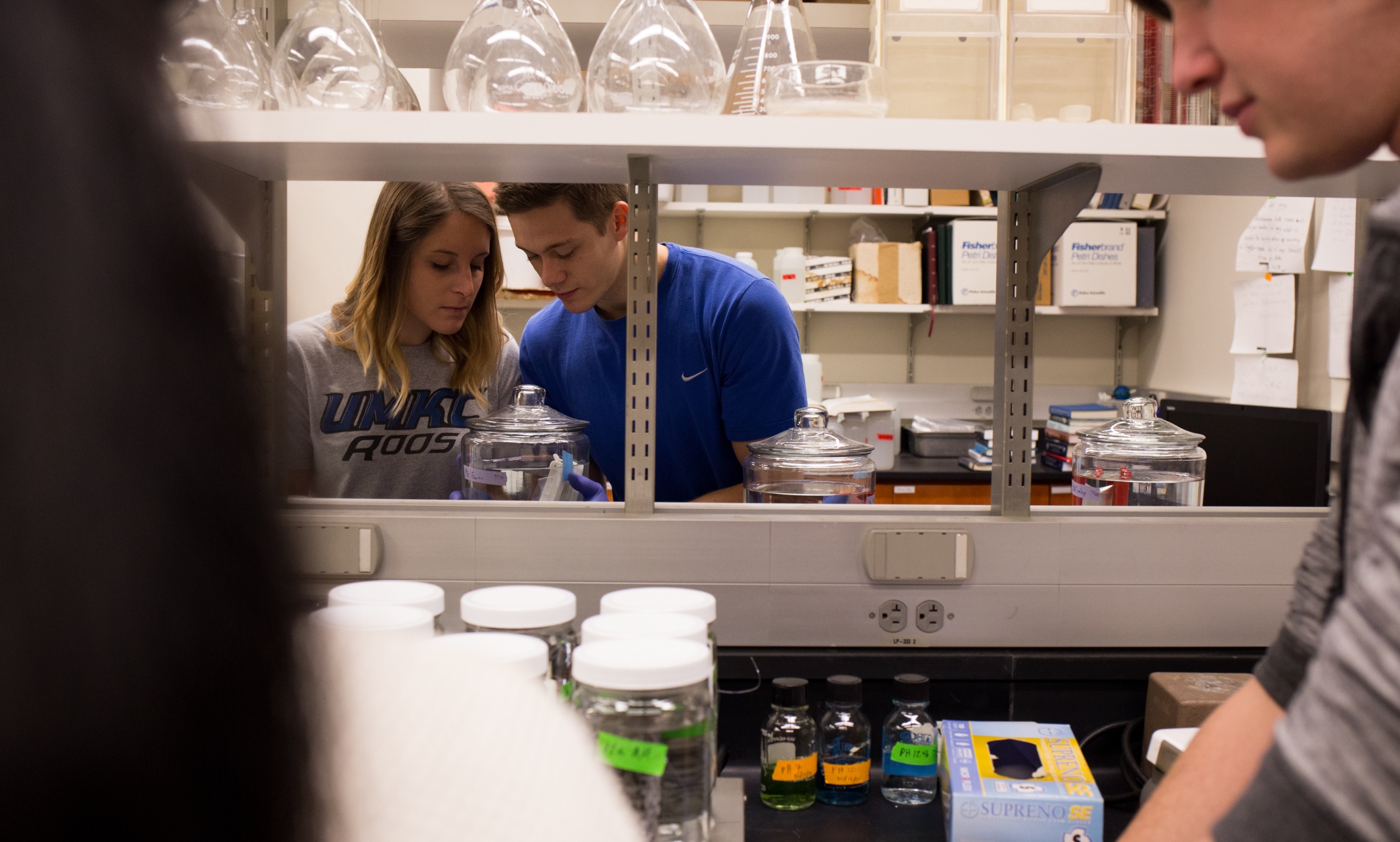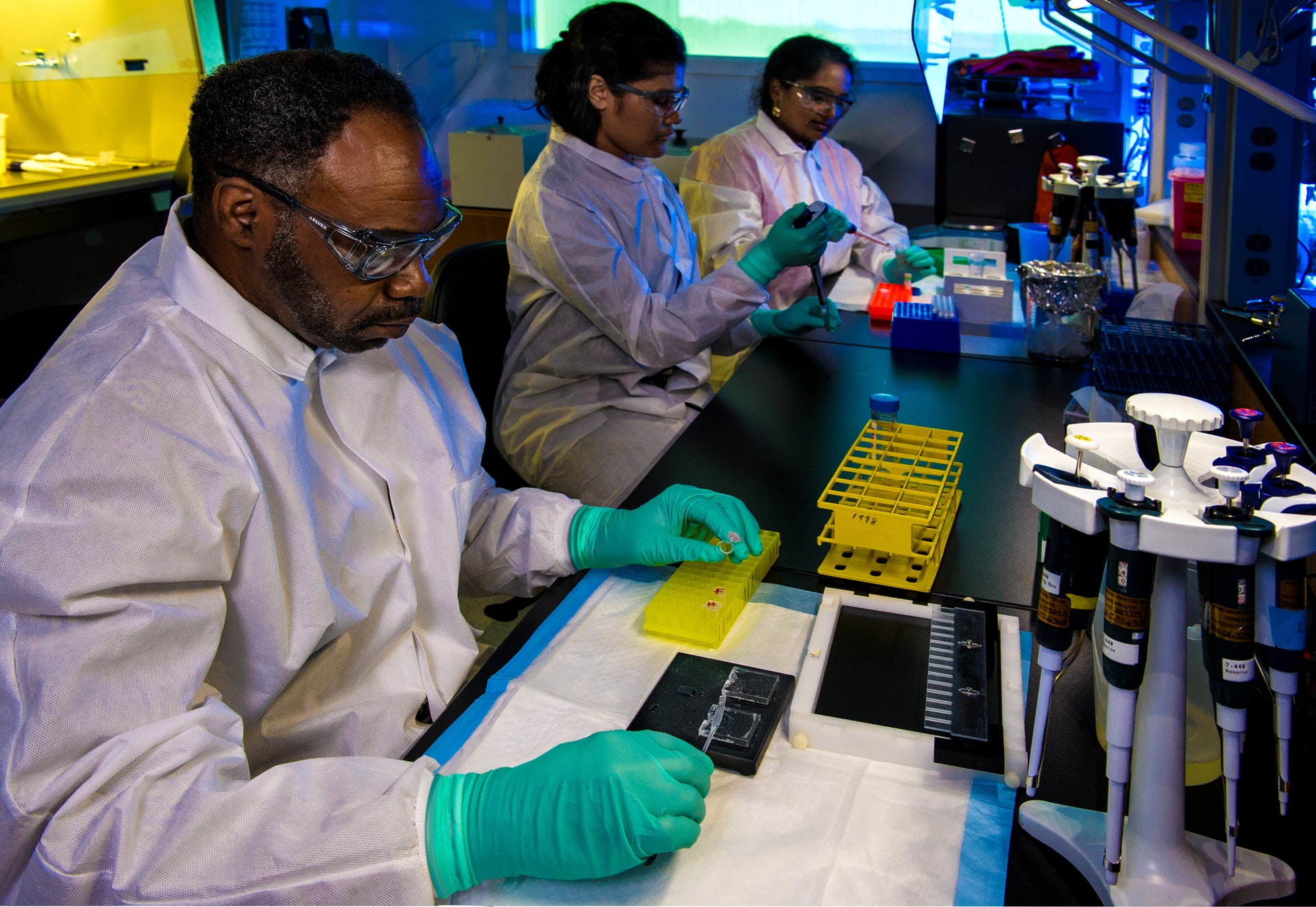Research
Featured Research Areas
If PFAS has touched it, we want to solve how to degrade it. Our funded research areas range from industrial contracts in wastewater, landfill leachate, and technology development to federal funds through Strategic Environmental Research and Development Program and Environmental Security Technology Certification Program.
PFAS Destruction in Concentrated Solutions
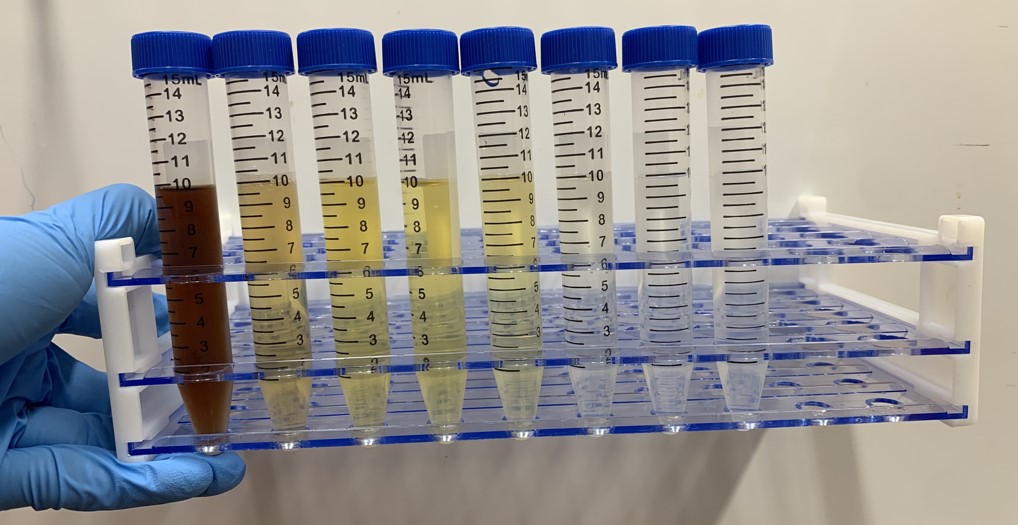
UV/SGM is a relatively simple and scalable packed bed filter system design that combines an innovative foamed sol-gel with ultraviolet activation and photolysis. UMKC verified UV/SGM performance using various wastestreams including (1) stormwater collected from an AFFF release facility, (2) PFAS-spiked deionized water under acidic conditions, (3) simulated regenerable IX still bottoms waste and (4) environmentally relevant still bottoms collected from an former naval facility. Initial testing of reverse osomsis reject streams, foam fractionate, and landfill leachate is currently underway. Results indicate that UV/SGM treatment successfully destroyed multiple PFAS present in each waste stream, including PFOS, PFOA, other PFSAs and PFCAs, and PFAA precursors such as fluorotelomer sulfonates.
AFFF Impacted Concrete
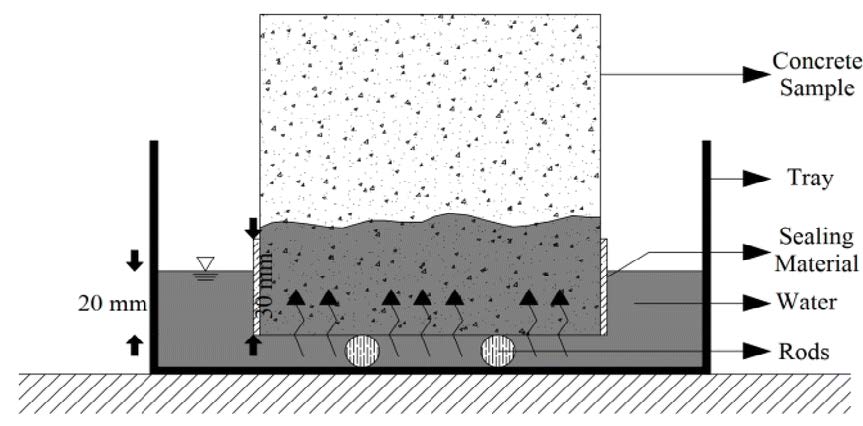
Concrete is a complex material with varying compositions which depend upon the engineered service specifications. Concrete’s potential to release PFAS in response to various environmental stressors such as carbonation, freeze-thaw cycling, salt or coastal salinity penetration, and combinations thereof will be evaluated by determining the role of concrete durability on PFAS sorption or binding capacity and PFAS mobility. Specific project objectives include the following:
• Provide multiple lines of evidence that PFAS leaching potential is relatable to concrete
durability.
• Determine the PFAS leaching potential of concrete samples under simulated rainfall events.
• Assess if PFAS impacts the durability of concrete over time.
• Assess if freeze-thaw cycling affects PFAS leaching potential.
• Assess if salt penetration in concrete affects PFAS leaching potential.
• Perform preliminary assessment of concrete sealant performance with leachability of PFAS
from impacted concrete.
UV/SGM Full Scale Field Demonstration
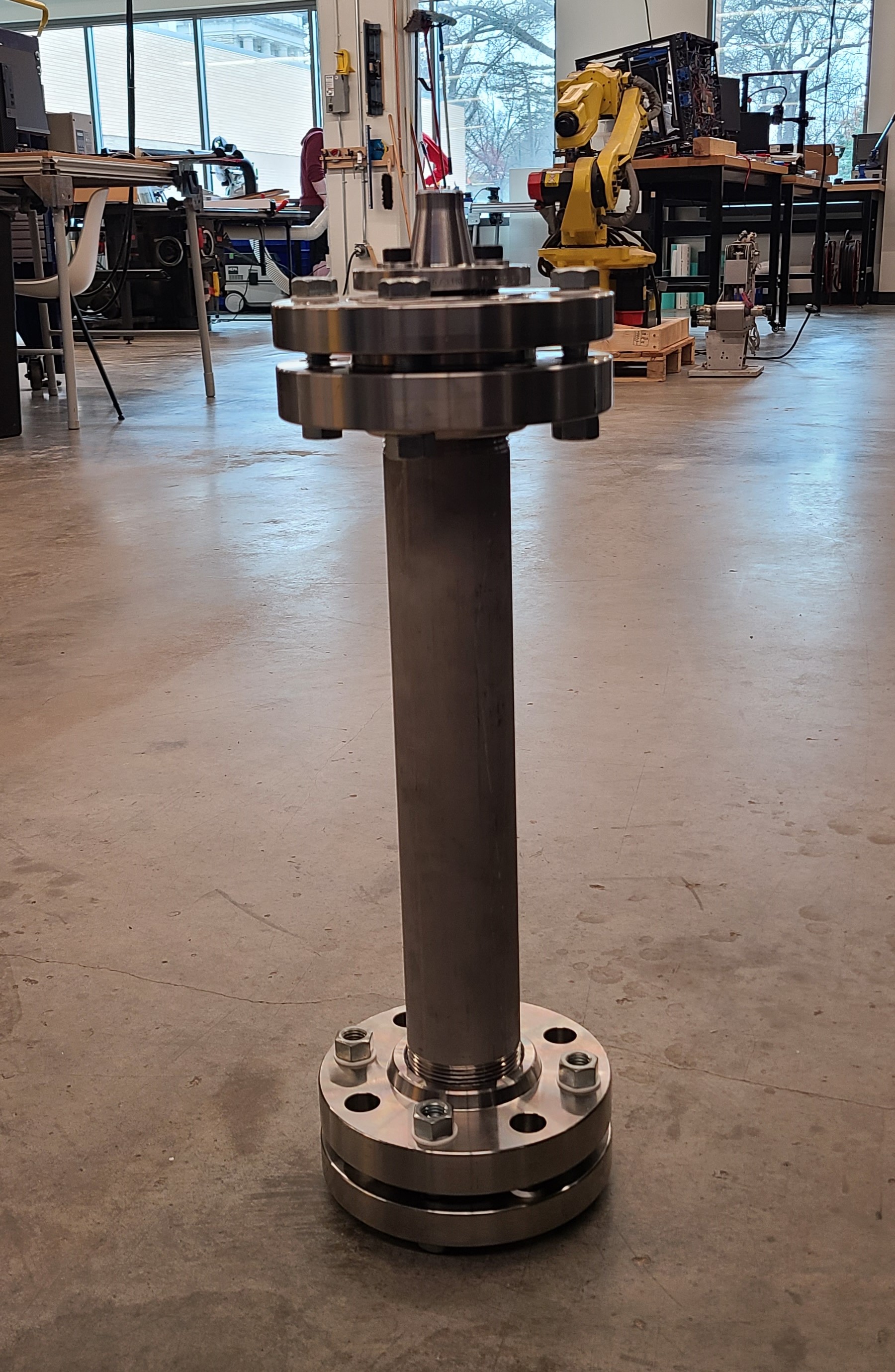
The overarching goal of this 2.5-year project is to deploy a destructive PFAS treatment technology at a field site to assess technology scale-up, cost, and performance. The technology is UV-activated titanium dioxide (TiO2) SGM operated as a packed bed reactor to treat concentrated liquid waste. Specific Project Objectives Include:
- Characterize site-specific liquid waste
- Inform field reactor design and decisions regarding tradeoffs (e.g., reactor wattage, SGM volume, acceptable contact time)
- Assess reactor scale-up
- Assess performance
- Evaluate costs and cost savings from PFAS waste disposal
Lighting the way
Forefront Of Research
UMKC remains on the forefront of PFAS related research.

Team
Our Team On The Forefront Of Research
Our researchers are international and multi-disciplinary experts advancing the state of the art.
Our Latest Updates
News And Updates About Our Research And People
Our Partners
Thank You To Our Partners
![]()





![]()


